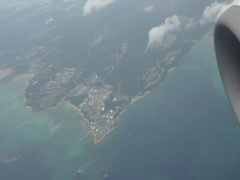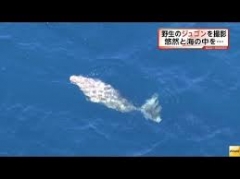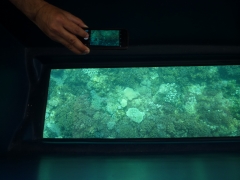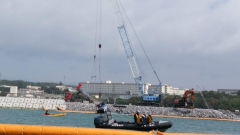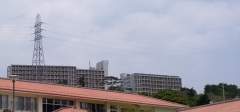21 June 2018
Dear US Ambassador to Japan, regarding Okinawa issue
I sent a letter to US Ambassador to Japan, Mr. Bill Hagerty today. It should be handed to him next Monday hopelly.
The below is what I wrote to him.
Dear Mr. Ambassador Hagerty,
June 24, 2018
My name is MASAGATA, a Japanese man living in Tokyo. I used to study at San Francisco State University, where I majored in International Relations. I am now working as a translator using the English knowledge I acquired in the US.
I am writing this letter to tell you about a matter that is very important to both of our nations. I am sure that you are well aware of many issues between the two nations. I would like to mention the most important of these: a matter that might result in long-term deterioration of the current healthy relationship between the two nations. I urge your government to rethink its ways of dealing with this issue. Four years ago, I wrote to former Ambassador Caroline Kennedy regarding the same issue. This is modified version of the letter with update information.
The matter in question is the relocation of the US Marine Base from Futenma in Ginowan City, Okinawa Prefecture, Japan’s southernmost tropical islands, which are a little like Hawaii. In 1996 both the American and Japanese governments agreed to relocate Futenma base to Camp Schwab to get away from the densely populated area around Futenma. Camp Schwab is on the coastline of the island, in an area called Henoko.
I am sure you have already been there and talked with Okinawa governor, Mr. Onaga about this issue. As you may know, there has been a local resistance movement since the relocation plan was announced. Locals near Camp Schwab are concerned about the deterioration of their living environment. Many environmental activists also oppose the plan because of the abundance of forms of wildlife that are unique to the area around Camp Schwab. The relocation plan includes reclamation of the sea to build two runways expanding existing facility. Schwab is located in between Henoko coast (left) and Oura Bay (right).
This photo is of a dugong, an endangered marine mammal that eats grasses in the sea. It is just ridiculous that the nation that protests Japan’s whaling in the Antarctic Sea – and even dolphin hunting in Taiji, Wakayama Prefecture that former Ambassador Kennedy was eager to protest – is helping to threaten another marine mammals that live in Japan.
In Oura Bay, the world’s largest, oldest and northernmost blue coral lives and has continued to grow for 3000 years.
Many new species are discovered in the bay recently. A lot more may be still undiscovered.
On Henoko coast, the sea is enclosed and scheduled to be reclaimed in August and dugongs and other creatures’ lives would be threatened. Dugongs’ sea grass is found in the reclaiming area. They will lose their feeding place. As for blue coral, reclaimed space would change the sea current and might adversely affect life of the coral. Then what will happen is that your nation will be accused of helping to diminish such wonderful and rare creatures for the interests of the few.
The few, you might know, are certain businesses and government people who want some gains from the project. One of major contractors of the project is Taisei Kensetsu Corporation, where son of current Cabinet Secretary, Mr Suga, works. Actually, the Japanese Ministry of Defense carried out an environmental assessment in which it was claimed that there were no dugongs in the sea. But the environmental organizations such as WWF and The Nature Conservation Society of Japan claim that the MoD’s assessment was wrong and the organizations’ own research found clear traces confirming the existence of dugongs. Recently, Okinawa’s local newspaper revealed the news that the MoD was aware of the finding but had covered it up.
On November 22nd, 2013, in Nago City (to which Camp Schwab is attached), the city council made a resolution demanding the Okinawa Governor not to permit landfilling of the sea. However, the governor permitted the landfill in December even though a majority of Okinawans disapproved his decision.
The following month, in January, Okinawa Prefectural Council made a resolution demanding the Governor’s resignation. Okinawan protest activists announced legal action against the prefectural government in order to cancel the permit. Later, on January 19th, the mayor of Nago City, INAMINE Susumu was re-elected because of public support for his policy of the city’s refusing corporation with central and US governments regarding construction of the new base project.
However, last February INAMINE lost to a candidate Mr. Toguchi who was backed up by the Japanese government’s ruling parties. But Mr. Toguchi never mentioned whether he agree the relocation plan or not during the election campaign, rather he claimed that he request the US Marines move out of Okinawa. So he could not be seen as pro-relocation and construction of new base in Henoko from voters’ perspective although he is betraying the voters’ expectation now.
You might say this issue is something to be handled by the Japanese government, and that it is not the responsibility of the US military. But that sounds very hypocritical. The US military is the one that uses the facility and up until now involved in designing of new runways and annexed facilities. The US government can cancel that project and find another relocation site outside Okinawa. If the US continues to attribute this to the Japanese government, it is just like what Japanese conservative politicians say when it comes to the “Comfort Women” issue: “The Japanese Imperial Army was not responsible for kidnapping women in Asia for sexual slavery for soldiers during the war period in the early 20th century, it was what outsourced local brothels did.” The US Congress disavowed such argument and made a resolution to demand that the Japanese government apologize for former comfort women in 2007.
Until now, tens of protestant were arrested and injured by police at the gate or coast of Camp Schwab. Such news reports have been broadcast all over Japan. The construction will take many years to complete, while resentment is continuing to build. Your military and diplomats are dealing with such problems for a very long time. Young marines trained there as well. During mayoral election, I met group of young marines in Nago city. I talked to them but they said they were not allowed to talk with strangers.
Besides these factors, there are technical issues revealing infeasibility of the construction project as follows.
- Active faults are found to exit down below planned construction site of runways. If that is the case in California, the project wouldn’t be permitted.
- Around planned construction site of runways are buildings higher than US military aviation standard, flying there might cause collision with these buildings, similar situation to Futenma Air Base in Ginowan city. The buildings include school and its dormitory at which young students attend classes or reside. The school officials were not informed of this matter until recently. No plan of relocation is announced although a power transmission tower next to the building was already planned to relocate from that site.
- Geological survey conducted in the sea indicates seabed is too fragile to reclaim like mayonnaise, which consumes more budget and time so the construction period should be much longer than expected like 15 years from now.
It is possible that the project is cancelled halfway for some reason but irreversible damages would be left together with grudge from locals.
In fact, the US military presence in Okinawa and even nationwide is becoming nothing but troublesome. More of us know that the US military presence no longer functions as defense or deterrence like in the Cold War era. China is said to be a new threat but we know that US-China relations have become more vital for your nation since China owns more US treasury bonds and buys more US goods than Japan does. China has become a larger economy than Japan these days. Trade amount between US and China is three times more than that between US and Japan. President Trump’s family has businesses in China. Unlike former Presidents, Mr. Trump never mentioned human rights issues in China.
Mr. Trump imposed sanctioned on China for trade issue recently but Japan is a prime target as well since Japan has run surplus on trade with US like Canada and Europe. Mr. Trump’s sanction tells how important and influential China has been for US economy.
We can easily predict that the US would not help Japan even if China and Japan became involved in a dispute for some reason such as the territorial right to the Senkaku islands. The US cannot send troops to assist Japan fighting against the Chinese military because such action might cause great losses for your national interests. China has many ways to sanction your nation as already did recently. China also played a big role in negotiating with North Korea. China is vital for US politics as well as economy.
Military experts say that the biggest reason that the US military forces stay in Japan is to cut cost of their own because Japan provides host nation support fund, which we call “Sympathy Budget” that accounts for more than 70% of total expense for the US bases in Japan. There are more than 130 facilities of US military in Japan. Most of the troops are stationed at 30 facilities in Okinawa prefecture that accounts for 1 % of total of Japan’s territory and population. Okinawa has been occupied until 1972, which is 20 years after mainland Japan regained sovereignty and was the only place that experienced ground battles within Japan, causing 200,000 civilian casualties during WW II. During Vietnam War, it was a transit point to transport soldiers, military weapons and equipment. Now there is no strategic importance. How many of US congressmen and senators knows Okinawa? Is this place worth keeping bases in?
Deploying your military so much in our country, especially Okinawa is just causing growing distrust against your country. I believe the Okinawa issue presents the perfect timing for your nation to rethink its military deployment in Japan in order to improve the relationship between the two nations. Constructing a base on reclaimed land in the Henoko sea is the worst possible idea.
US military presence functions to apply American influence on our nation. Yes, it did work that way but you really have to know this may be working negatively. The image of your country itself is no longer positive like in the past. In other words, the US is no longer a powerful land of dreams, nor is it any longer a role model for us. One example of this can be seen in a recent best-selling book on your country’s poverty issue. The title of the book is “Rupo Hinkontaikoku America” (Report, Poverty Superpower, America). It was written by a Japanese journalist, TSUTSUMI Mika. The book describes how Americans are struggling with poverty in a plutonomy society and explains how Japan should not follow suit.
We know that a lot of young Marine troops stationed there come from poor families that cannot afford college education and have problems like domestic violence. They join the Marines by system, so called, Poverty Draft. That is why they cause troubles with Okinawa locals.
The interesting thing to note is that Japan was democratized and the wealth of the nation was redistributed from pre-war plutonomy by the US occupying forces. Thanks to them, Japan has become the most egalitarian society among industrialized nations. We do appreciate that. We are always good friends to you as long as you are what you should be. However, recently I, myself turned a former friend due to what is happening in Okinawa.
When Okinawa was first occupied by US Army which defeated Japanese Imperial Army, Okinawans saw Americans arrived there as liberators but later that was found to be false. But this time is a greatest chance to be the one since the Japanese government is too rigid to hear voice of Okinawa. Please do not miss this chance.
As for practical solutions, I recommend your organization to review a proposal by a private think tank, The New Diplomacy Initiatives (http://www.nd-initiative.org/en/), which suggests removal of US Marine bases from Okinawa but instead, establishing joint Humanitarian Assistance/Disaster Relief (HA/DR) Corp. with Japan’s Self-Defense Force equipped with high speed transport vessels, which rotates around East Asia. It is cost-effective and able to contribute to security of the region.
Sincerely,
23:28 Posted in Ecology, Japan News, Politics, Travel, US-Japan relationship | Permalink | Comments (0) | Tags: military, okinawa, environmentalism







